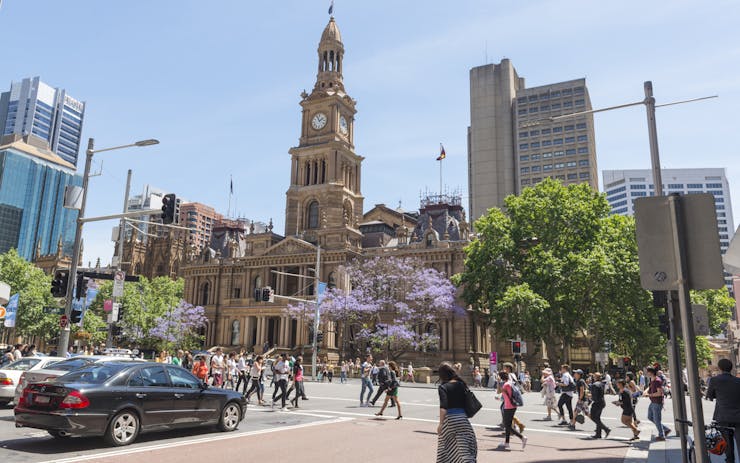Access to cannabis for people with terminal illnesses and chronic pain was delayed last week when the New South Wales (NSW) state government blocked a law that would have decriminalized possession of marijuana for those suffering from serious medical conditions.
The legislation, which would have decriminalized possession of up to 15 grams of cannabis in cases where it was being used to treat chronic pain, was introduced by the opposition Labor party and blocked by the majority Liberal Legislative Assembly. Despite the fact that the proposed law grew out of the recommendations of a bipartisan parliamentary inquiry into the use of cannabis for medical purposes, no bipartisanship was present when it was voted down.
“By refusing to pass this legislation, the NSW Government has put up an unnecessary hurdle for sufferers of terminal and chronic illnesses.” NSW Labor Leader Luke Foley said in a statement.
“It is deeply disappointing that the Government has denied legislation that will restore dignity to those people seeking temporary relief from the pain and suffering of their affliction. Those who are suffering from terminal and serious medical conditions deserve sympathy and support—and they should not be treated like a criminal for seeking respite from relentless and unwavering illness,” Foley continued.
“We are particularly concerned that the government has done little to ensure a consistent supply of regulated and affordable product.”
Further south, in the island state of Tasmania, another Labor politician has taken up the cause of medical cannabis in a different way. Sen. Lisa Singh has been campaigning in the senate for a quicker and more consistent cannabis licensing program.
In a speech to the Australian senate last week, Singh urged the government to enable the establishment of the medical cannabis industry in Tasmania. Specifically, she wants to ensure that the global opioid supplier Tasmania Alkaloids (which has partnered with medical cannabis company AusCann) can secure a closed-loop cannabis production chain.
“Closed-loop production is key to a successful Tasmanian medical cannabis industry,” Singh said, “The opportunity to grow, manufacture, and distribute directly from one location alleviates legitimate security concerns.”
Rather than focus solely on patient access issues, Singh is also eager to realise the economic benefits of a thriving medical cannabis industry in her state. “Tasmania is ideally positioned to become a manufacturing base both for the domestic and international markets in medicinal cannabis,” she said, “The Australian domestic market for medicinal cannabis has alone been estimated to be worth AU$100 million a year.”
“If Tasmania is able to seize the opportunity of becoming a global leader in the cultivation and manufacture of medicinal cannabis, then there will be similar substantial economic benefits to reap for my home state like we have from cultivating the world’s legal opium crops,” she said.
But before that economic dream can be achieved, Singh says the federal government needs to develop a more consistent application of its medical cannabis laws across states.
“We are particularly concerned that the government has done little to ensure a consistent supply of regulated and affordable product, or to drive consistency across states on the legal treatment of people currently accessing medicinal cannabis.” Singh told Leafly.
The Tasmanian senator isn’t the only politician taking up the torch for the medical cannabis industry. Victorian Minister of Agriculture and Regional Development Jalaa Pulford recently visited medical cannabis facilities in Canada with CannGroup CEO Peter Crock.
This state-level support for medical cannabis is good news for growers and patients in some parts of Australia, but frustration will continue to rise in states like New South Wales if their governments continue to block efforts to extend compassionate treatment to medical cannabis patients.





